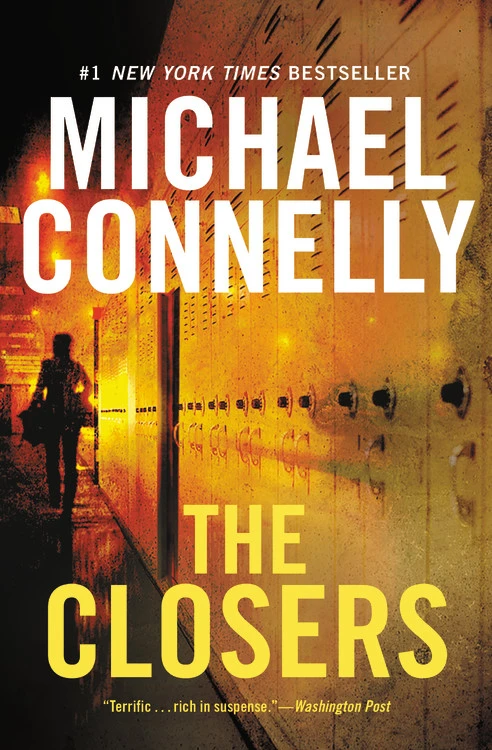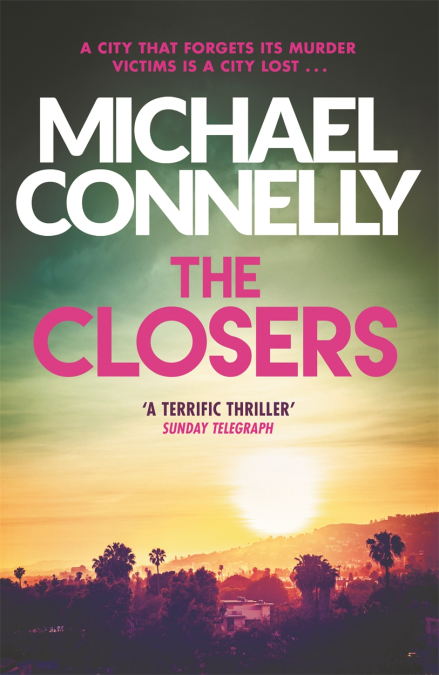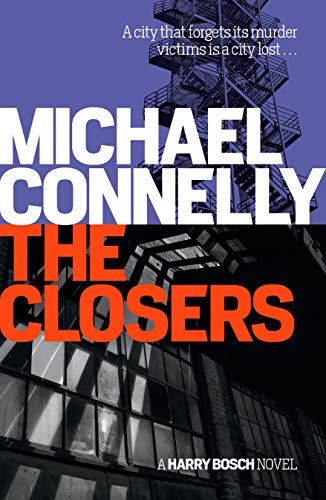Harry Bosch Interview
Michael Connelly “Interviews” Harry Bosch (2005)
The following interview between Michael Connelly and Harry Bosch took place on March 25, 2005 in a Hollywood Boulevard cyber café called the Frontal Lobe. As is Bosch’s usual practice, he insisted that the interview be taped, transcribed and presented without editing.
3/25/05 1:21 p.m.
Connelly: Okay, we’re recording.
Bosch: This is the same place you interviewed me in last time, isn’t it?
Connelly: Yeah, I think so. About three years ago. Why? You don’t like it?
Bosch: I don’t know. All these computers . . . sort of makes me feel like General Custer at the last stand or something.
Connelly: Surrounded by the enemy, huh?
Bosch: It’s just not my style, I guess.
Connelly: Well, we don’t have to do it here. You want to go to Musso’s? We could walk over there.
Bosch: No, you don’t go to Musso’s for coffee. And it’s too early for a martini.
Connelly: Especially now that you are back on the force. You have that responsibility that comes with carrying a badge again.
Bosch: Something like that.
Connelly: That’s what I wanted to get into. You left the department three years ago — in fact, that’s what we talked about last time. But now you are back. How and why?
Bosch: The how is the easy part. The department has a policy of hiring detectives back if it is within three years of retirement. I was sort of reminded of it at the right moment and I applied for reinstatement. Here I am.
Connelly: And the why?
Bosch: That’s a little complicated and hard to put into words.
Connelly: I heard that you told your partner that you started limping and you realized you were out of balance because you weren’t used to walking without a gun on your hip.
Bosch: I did say that but that was probably because I couldn’t put the answer in to the right words.
Connelly: What about now?
Bosch: Well, if you start with the belief that I have a certain talent and purpose in this life, then you see that by going back to the department I put myself in a position to make the best of both. What I am saying is that I made a mistake when I retired. I left Hollywood Division after a particularly difficult and frustrating case. I walked out with a box of files from open cases and I thought I would spend the rest of my days working on them and I would be satisfied.
Connelly: I think I understand. Did you—
Bosch: Actually, satisfied is the wrong word. Did you ever see that move Ride the High Country? It’s one of Peckinpah’s first flicks — I mean I think it was — and anyway at one point the main character says that all he wanted out of life was to be able to come home justified. That’s not the direct quote. I can’t remember the direct quote. But that’s what he was saying. At the end of the day, he wanted to walk through the front door justified.
Connelly: So what you are saying is that you want to be justified . . .
Bosch: Yeah, every man and woman wants to be justified in how they live and what they do and in what they believe. And I wasn’t feeling that anymore. I solved a few of those cases I took home with me when I walked out but I didn’t feel justified in what I was doing. You see, I told you, it’s hard to explain.
Connelly: Justified . . .
Bosch: Yeah . . .
Connelly: When did you see this movie?
Bosch: Oh, way back. That was the Sanctuary.
Connelly: Sanctuary? What is that?
Bosch: It was a military hospital boat. I was on it in the South China Sea. This is like thirty-five years ago. I got wounded in a tunnel in Cu Chi and I was on the Sanctuary for about three weeks recovering. They showed movies almost every night out on the deck. They’d put up a screen and turn on the projector. It was mostly stuff that was a few years old, at least. And that’s when I saw Ride the High Country. That line about being justified, a lot of us on that boat took it to heart.
Connelly: So your life is about being justified and that’s what brought you back to the force.
Bosch: My life is about a lot of things, just like with anybody else. But I found that when I quit the force and was working cases on my own that I was still missing something.
Connelly: Well, you said that you solved a few cases while you were retired. Didn’t you feel justified in that?
Bosch: I did but it wasn’t the same. I felt like I was doing it for myself, like I was putting myself ahead of the mission.
Connelly: I don’t understand.
Bosch: That’s what I am telling you. It is hard to understand. I’m not sure I understand it myself. All I know is that I was working cases without a badge and it somehow seemed selfish. I was being self-indulgent. I felt like the boy who takes his football home with him because he’s not getting enough passes. He takes the ball home with him and it ruins the game for everybody. Working cases from home wasn’t the best use of my…
Connelly: Skills?
Bosch: Sort of, but I’m not sure what the word is.
Connelly: Talent?
Bosch: No, not that.
Connelly: Your purpose?
Bosch: Yeah, that comes closest. My purpose. I know I have a purpose or a mission — and I know that sounds weird to say out loud. In fact, I don’t think I ever have before. But I have thought about it. Thought about it a lot. I have a mission in this life. A purpose. And I realized that I wasn’t serving that purpose by chucking the badge and going home with my box of files. If I was going to honor the purpose and continue the mission, I had to get back inside. And just as I was thinking about all of this a perfect opportunity came up.
Connelly: Which was the Open-Unsolved Unit?
Bosch: Exactly. There was a slot in OU and once I got there I knew I was in the right place at the right time.
Connelly: Tell me about the unit.
Bosch: We’re the closers. We close the cases nobody has been able to. The police chief and the guy who runs the unit think it’s the most important place to be in the department. Because it’s the place where we don’t forget. A city that forgets its victims isn’t a city anymore. It’s a place that’s lost. That’s what they say.
Connelly: And you believe it?
Bosch: I do.
Connelly: Well, what makes the people on this squad so special?
Bosch: Nothing other than that we all recognize the mission. But the secret to our success is not that. It’s usually science. We use forensic techniques not available back in the day that these crimes were committed and investigated.
Connelly: So it’s that techniques and technology have improved. It’s not that you are making up for incompetence in previous investigations.
Bosch: I am not going to get into criticizing former or fellow detectives. Besides, coming back as a retread I am on one year’s probation. The Chief can fire me without cause during probation. I don’t want to say something in an interview that might make him exercise that option.
Connelly: Did you just say ‘retread’?”
Bosch: That’s what they call the detectives that come back after retirement.
Connelly: That’s really endearing, isn’t it. They must love you guys.
Bosch: I never thought of it that way.
Connelly: Okay. Let’s talk about the investigations. They must be different than conducting the investigation of a contemporary murder. You know, something that is brand new.
Bosch: We call them fresh kills. And in Open-Unsolved we work old kills. Cold cases, as they used to be called, before the Chief said he didn’t like that term because cases should never go cold in the LAPD.
Connelly: Sounds like a good public relations stunt. You don’t like something, just rename it so it doesn’t offend you anymore.
Bosch: No comment.
Connelly: Right, you’re on probation.
Bosch: You got it.
Connelly: So how are the cases different?
Bosch: Well, two things really. One is you are dealing with cold trails — places and people who have changed over time. People move on. Crimes scenes get paved over. So you really have to dig harder. And the people involved are different, too. With a fresh kill you are taking and breaking the news to the family. With an old case you are seeing the long term effects that an untimely and usually violent death has on individuals and families. I’m still new at it but I think that aspect will be the single toughest burden to carry. I can tell that I get attached to these cases much more that anything before.
Connelly: So do you think you are going to stick around this time?
Bosch: As long as they’ll let me.
Connelly: And how do you feel at the end of the day when you come in through your front door?
Bosch: Like I’m riding the high country.
Connelly: Are you justified?
Bosch: Yes, I am justified.
Connelly: Good. I’m glad. And I think that’s it for now. I’ll turn the tape off. See you next ti—
End of tape.


